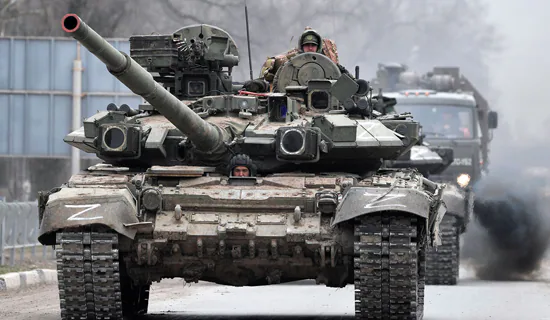On January 16, 2023, Russia's Ministry of Finance reported that the average cost per barrel of Urals oil from December 15, 2022 to January 14, 2023 was $46.82 – a fall to a two-year low due to discounts and the strengthening of the ruble. The ministry said that these factors can largely influence the formation of the Russian budget. At this time, the cost of oil in rubles is 3,233, or $46.68 – a figure that is lower than the indicators included in the country's budget. The ministry also noted the reduction of export duties on the oil from February; for oil, duty will now be $12.8 per ton.[1]
Kommersant's Ivan Yakunin unpacked this finance ministry announcement, stating that the price ceiling imposed on Russian oil by the West is working and is pushing the Russian budget deeper into the red. He added that the restrictions on the import of Russian oil products has put Russia in the unenviable position of seeing China capture the Western market for these products, using oil that it has acquired from Russia at a steep discount.
Yakunin's article follows below:[2]

(Image: Rueconomics.ru)
"New difficulties await the Russian economy due to declining oil prices. According to the latest Ministry of Finance data, the average price of the Urals brand dropped to $46 [per barrel], while the budget was set [based on an assumption] of $70. The Russian authorities were going to cut production in order to limit supply and raise prices on the world market, but the latest data show that supplies, to the contrary, are growing. According to Bloomberg estimates, in just a week, the volume of shipping increased by 30% at once. Were will this lead to? Ivan Yakunin sorts this out.
"Despite assurances by Moscow, the [West-imposed] oil embargo and price ceiling on Russian crude oil are working. The spread between benchmark Brent and exported [Russia-produced] Urals brand of oil has risen to 43%; it's a new anti-record.[3] It would be logical to limit supply on the world market, so that the price would go higher, but Russia is acting differently: there are more shipments in the Baltic Sea, the Black Sea and the Far East.
"Sergei Kondratyev, Deputy Head at the Economic Department at the Institute of Energy and Finance, however, is optimistic. [He said]: 'True, we have lost a share of the demand. Russian companies were forced to increase the differential [to purchasers] in order to increase the attractiveness of purchasing domestically produced oil. In the next two to three months, the situation will, probably, remain difficult, as the price differential will remain high.
"'But gradually, when we'll see an improvement in the freight situation and in the global market in general, due to, for example, China coming out of lockdowns and an increase in demand. There there will be an increase in prices for the benchmark oil grades and correspondingly, an increase in the Urals price.'

Sergei Kondratyev (Source: Kommersant.ru)
"But so far, the situation remains critical, at least for the [Russian] budget. The export duty is based precisely on the Urals brand price, and budget revenues are falling with it.
"The situation would still be fine, provided the budget is not in deficit. According to the plan, this year's expenditures will exceed revenues by 3 trillion rubles – but that is [based on an oil] price of 70 USD per barrel. At 46 USD per barrel, as it is the case now, the situation is different, and the government will have to urgently weaken the ruble, explained Igor Nikolayev, Chief Researcher at the Institute of Economics of the Russian Academy of Sciences:
"'With such a difference in the prices at which we have to sell Russian oil, we will have a federal budget deficit of, I estimate, be 1.5-2 trillion rubles higher [than planned]. To balance it, we need an average annual USD exchange rate of about 90 [the current exchange rate is 69 rubles to the dollar]. The budget was formed on the assumption that loans will be performed on the domestic market. But do we have a basis for such an assumption? The options will be quite limited.'

Igor Nikolayev (Source: Rosbalt.ru)
"But the problems do not end here: From February 5, 2023, restrictions will also apply to the supply of petroleum products. They are exported at a lower volume than crude oil, but they are more difficult to channel to the East, as India [a major consumer of Russian crude oil] has its own refining system.
"So, it means minus another revenue stream, argued Andrey Kochetkov, Lead Analyst at Otkritie Investments: 'It is assumed that those oil volumes that were allocated for refining within Russia will be directed for refining to other countries, which means that the fuel supply on the market may increase. But, consequently, since it is traded at a discount, the amount of the price cut could also grow.
"'Naturally, it would be unpleasant for Russia, because we lose the utilization of our refining capacity, while those countries that refine fuel can offer Europe new volumes of the same oil products made from Russian raw materials. Figuratively speaking, for lack of stamped paper, we write on ordinary paper [i.e. we have to make do].'
"For now, though, Europe is preparing for an embargo and has boosted its diesel purchases, since last March, to record levels (as estimated by Reuters). It plans then to buy it from China, despite complicated logistics. The PRC, so far, is the only beneficiary that gets both cheap raw materials and new markets [from Russia], while Moscow will have to bow down to its main consumer [China]."
[1] Rueconomics.ru, January 16, 2023,
[2] Kommersant.ru, January 17, 2023.
[3] In normal times, Brent generally sold higher than Urals because it was easier to refine and could be shipped economically via tanker, but the differential was at most $7, and when an embargo was imposed on Iranian oil the difference shrank to just $1.




